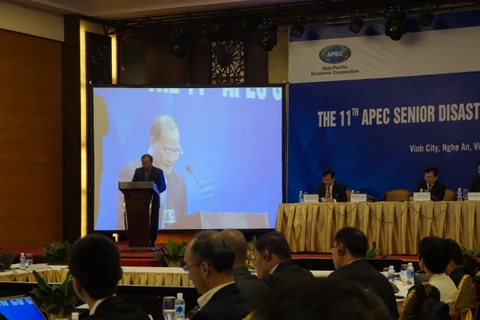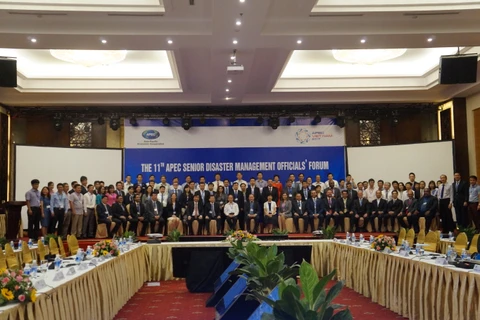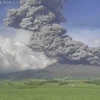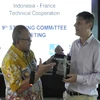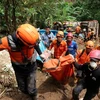Nghe An (VNA) – Natural disaster management activities should be implemented in parallel with ensuring sustainable growth, and the UN Sustainable Development Goals (SDG) will not be completed without the successful prevention of calamities, APEC senior officials have noted.
As part of discussions within the 11th APEC Senior Disaster Management Officials Forum (SDMOF 11)that is being held in the central province of Nghe An, APEC officials emphasised that economic growth must not bring about new risks. They concurred that new tools and training courses should be designed for the community to recognise and prevent the risks.
At the same time, it is necessary to prioritise resources for mitigating disasters, while strengthening public preparedness for natural disasters and encouraging the engagement of busineses and the partnership between the private and public sectors in the field. The collaboration among technology and science research institutes, investors and the community is also important, they said.
Representatives from the United Nations Office for Disaster Risk Reduction (UNISDR), the Philippines, Japan and Vietnam highlighted the need for developing supporting tools as well as advanced science and technology in disaster management, especially in forecasting and early warning.
According to the UNISDR representative, problems related to water account for 90 percent of total disaster losses, therefore, it is crucial to seek new methods to minimise water-related disasters.
Officials from the APEC member economies also shared expertise in developing high technology infrastructure system as well as the application of advanced technology and science in dealing with new normal disasters.
They proposed reforming information supply and alert methods, while stressing the important role of management agencies in directing disaster response and recovery.
At the two-day forum, APEC officials are scheduled to issue a Joint Recommendation on Renovating Science and Technology Cooperation to deal with new normal disasters, with focus on addressing landslides in coastal areas, super storms and tsunami, which will be submitted to APEC leaders later this year.
Established in 1989, APEC comprises 21 economies, including Australia, Brunei, Canada, Chile, China, Hong Kong (China), Indonesia, Japan, the Republic of Korea, Malaysia, Mexico, New Zealand, Papua New Guinea, Peru, the Philippines, Russia, Singapore, Chinese Taipei, Thailand, the US, and Vietnam.
The APEC member economies account for 39 percent of the world population, 57 percent of the world GDP and 47 percent of the global trade.-VNA
VNA

